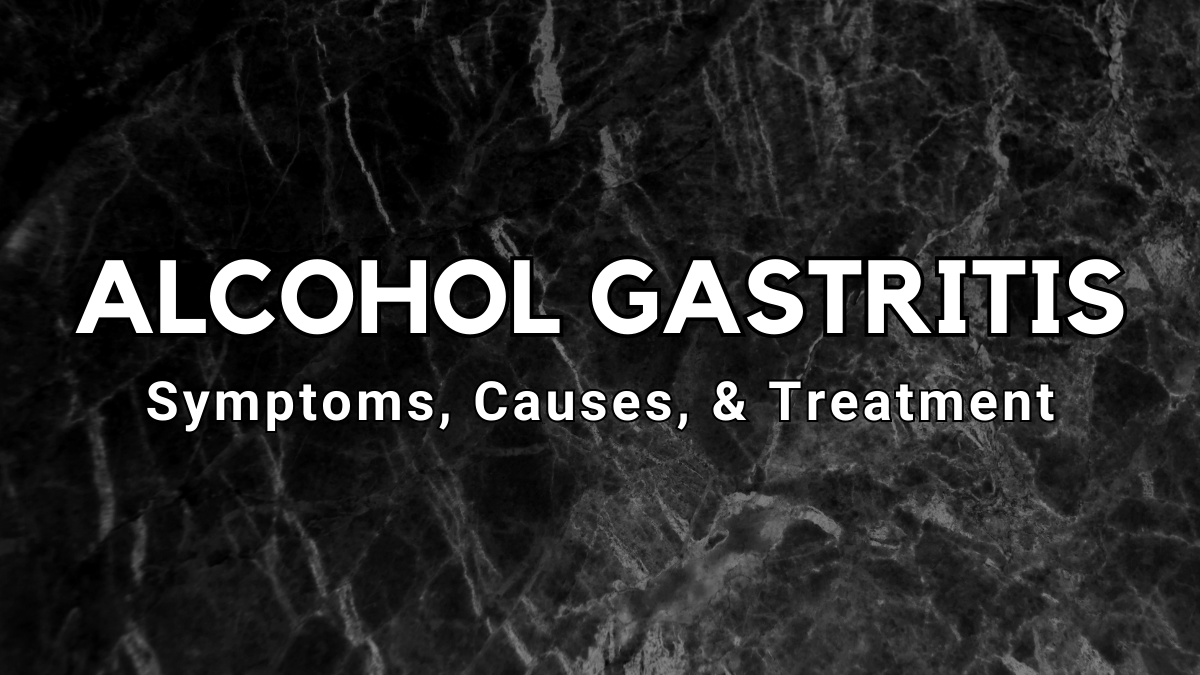What is Alcohol Gastritis?
Alcohol gastritis is a medical condition where the lining of the stomach becomes inflamed due to excessive alcohol consumption. Excessive alcohol irritates the stomach lining, causing inflammation and damage to the stomach lining, which can result in symptoms such as abdominal pain, nausea, vomiting, bloating, and indigestion. This condition is also called alcoholic gastritis.
Alcohol gastritis is a type of acute gastritis, which means it is a sudden onset and usually resolves within a few days. However, chronic alcohol consumption can lead to chronic gastritis, which is a more long-lasting condition that can result in more severe symptoms and complications.
Chronic alcohol use can also increase the risk of developing other types of gastritis, such as autoimmune gastritis or atrophic gastritis, which can lead to more serious health problems such as stomach ulcers, bleeding in the stomach, and an increased risk of developing stomach cancer.
Symptoms of Alcohol Gastritis
The symptoms of alcohol gastritis can vary in severity and may include:
- Abdominal pain or discomfort: This can range from a mild ache to severe, sharp pain in the upper abdomen.
- Nausea and vomiting: These are common symptoms of alcohol gastritis and may occur soon after drinking or the following morning.
- Bloating and gas: These symptoms can be caused by the inflammation in the stomach lining, which can affect the digestive system’s normal functions.
- Indigestion: This can occur due to the stomach’s reduced ability to digest food properly, leading to a feeling of fullness, discomfort, or burning sensation in the upper abdomen.
- Loss of appetite: This can occur due to the discomfort and pain associated with alcohol gastritis, leading to a reduced desire to eat.
- Black or bloody stools: These symptoms can indicate that the stomach lining is bleeding, which can be a severe complication of alcohol gastritis.

Seek medical attention if you experience any of these symptoms after drinking alcohol. Ignoring the symptoms can lead to further damage to the stomach lining and potentially life-threatening complications.
Causes of Alcohol Gastritis
The primary cause of alcohol gastritis is excessive alcohol consumption. Alcohol can irritate the stomach lining, leading to inflammation and damage. The amount of alcohol needed to cause gastritis can vary from person to person, but generally, heavy or binge drinking increases the risk of developing alcohol gastritis.
Other factors that can increase the risk of developing alcohol gastritis include:
- Frequency of alcohol consumption: Regular heavy drinking can damage the stomach lining over time, increasing the risk of developing gastritis.
- Type of alcohol consumed: Alcoholic drinks that are high in acidity, such as wine and beer, can increase the risk of developing gastritis.
- Genetics: Some people may be more genetically susceptible to developing alcohol gastritis.
- Age: As people age, the stomach lining becomes thinner and less able to withstand the effects of alcohol, making older adults more susceptible to developing gastritis.
- Other medical conditions: People with a history of gastritis, ulcers, or other gastrointestinal conditions may be more susceptible to developing alcohol gastritis.
It’s important to note that alcohol gastritis is entirely preventable by limiting or avoiding alcohol consumption altogether.
Treatment for Alcohol Gastritis
The treatment for alcohol gastritis usually involves a combination of lifestyle changes and medications, including:
- Stopping or reducing alcohol consumption: The first step in treating alcohol gastritis is to stop or reduce alcohol consumption. This can help to reduce inflammation and allow the stomach lining to heal.
- Medications to reduce inflammation: Over-the-counter medications like antacids or proton pump inhibitors (PPIs) can help reduce inflammation and protect the stomach lining from further damage.
- Antibiotics: If a bacterial infection is causing gastritis, antibiotics may be prescribed to clear the infection.
- Lifestyle changes: Eating smaller, more frequent meals, avoiding spicy or acidic foods, and quitting smoking can help reduce symptoms and allow the stomach lining to heal.
- Managing stress: Stress can exacerbate gastritis symptoms, so practicing stress-reducing techniques like meditation or yoga may be helpful.
- Follow-up care: It’s essential to follow up with a healthcare provider to monitor symptoms, ensure the treatment is working, and prevent the development of any complications.
In severe cases, hospitalization may be required to manage symptoms, such as severe vomiting or dehydration, and to administer intravenous fluids and medications. If left untreated, alcohol gastritis can lead to more severe complications, so it’s important to seek medical attention if you experience any symptoms of alcohol gastritis.
REFERENCES
The effects of alcohol consumption upon the gastrointestinal tract


